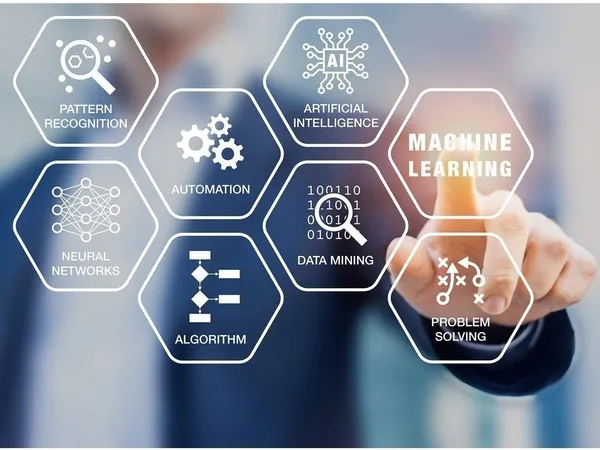
Revolutionary AI Technologies Transforming Pediatric Care: A Game Changer for Diagnosing Conditions like ADHD
2024-09-28
Recent advancements in artificial intelligence (AI) are set to dramatically reshape the landscape of pediatric medicine, particularly in the realm of diagnosis and treatment. In a compelling 90-minute interview, Dr. Lloyd Minor, the Dean of Stanford Medical School, emphasized the profound potential of AI to enhance efficiency and accuracy in medical diagnostics. This enlightening discussion, titled “How A.I. and Big Tech Are Shaping The Future of Healthcare,” detailed how AI algorithms are well-positioned to outperform even seasoned specialists in interpreting complex medical data.
Dr. Minor elucidated that the speed and precision of AI in interpreting X-rays and histological slides could take center stage in the diagnosis of rare diseases, potentially ushering in a new era of early detection and personalized treatment.
Addressing Common Pediatric Concerns with AI
The spotlight shone particularly brightly on pediatric conditions such as ADHD, autism spectrum disorder (ASD), and anxiety disorders. Finding the right medication for children plagued by neurological issues is often a daunting task. Many families encounter frustrating delays, with the "sweet spot" for effective treatment sometimes reached only after multiple trial-and-error attempts with different medications.
Parents often harbor apprehensions about certain medications based on past negative experiences, either with themselves or family members. ADHD, for instance, is a prevalent condition affecting both children and adults. The drugs most commonly prescribed include methylphenidates, mixed amphetamine salts, atomoxetine, and guanfacine, each presenting unique pharmacokinetic profiles. Recent research highlights critical insights into genetic variations and enzymatic activity that could influence individual responses to these medications.
Pharmacogenetics: Tailoring Treatments Through AI Insights
Emerging studies have illustrated that cytochrome enzymes, such as CYP2D6 and CES1, significantly impact how these medications are metabolized. For instance, poor metabolizers of atomoxetine may experience up to a 10-fold increase in drug exposure, whereas those with slower metabolism of methylphenidate could face 2.5 times the typical exposure. This discrepancy underscores the burgeoning field of pharmacogenetics, where understanding genetic backgrounds can inform safer, more effective medication choices.
A recent article in PubMed highlighted that access to pharmacogenetic information could facilitate better decision-making for clinicians and families in managing ADHD treatments. Yet, the practical application of this knowledge remains to be fully realized.
Addressing Polypharmacy Risks
Moreover, polypharmacy—the simultaneous use of multiple medications—presents another challenge in chronic disease and complex neurological management. The potential for adverse drug interactions looms, underscoring a dire need for improved tools and systems to predict and manage these scenarios.
Research from the National Library of Medicine proposes exciting AI models that aim to revolutionize primary care workflows. These models could potentially minimize drug interactions and render traditional electronic health record alerts obsolete. However, significant barriers remain, including the siloed nature of genetics, pharmacology, and clinical medicine, and the uncertain landscape of reimbursement for such innovative practices.
The Road Ahead: Promises and Challenges
AI's capability to ameliorate challenges faced in pediatric care—including ADHD treatment—holds incredible promise. However, the journey toward realization is complex and fraught with hurdles. As Dr. Minor and other thought leaders in medicine point out, while the future of AI in healthcare looks promising, it’s fraught with uncertainties regarding implementation timelines and practical efficacy.
In essence, while the idea of streamlining ADHD treatment via AI sounds enticing, predictions about these breakthroughs remain speculative. Fatigued by the unpredictable nature of medical advancements, we echo the words of legendary baseball player Yogi Berra: “It is difficult to make predictions, especially about the future.”
As we stand on the cusp of this transformative era in healthcare, stakeholders must navigate the challenges ahead to maximize the benefits AI has to offer in pediatric care. The necessity for collaboration across disciplines and thoughtful integration of AI technologies cannot be overstated.
Looking forward, the answer to whether these innovations can simplify diagnosing conditions like ADHD, much like diagnosing more straightforward ailments such as urinary tract infections, is still being written. Only time will reveal the full implications of AI's integration into the fabric of healthcare, but hope remains high as experts continue their explorations into this cutting-edge frontier.









 Brasil (PT)
Brasil (PT)
 Canada (EN)
Canada (EN)
 Chile (ES)
Chile (ES)
 España (ES)
España (ES)
 France (FR)
France (FR)
 Hong Kong (EN)
Hong Kong (EN)
 Italia (IT)
Italia (IT)
 日本 (JA)
日本 (JA)
 Magyarország (HU)
Magyarország (HU)
 Norge (NO)
Norge (NO)
 Polska (PL)
Polska (PL)
 Schweiz (DE)
Schweiz (DE)
 Singapore (EN)
Singapore (EN)
 Sverige (SV)
Sverige (SV)
 Suomi (FI)
Suomi (FI)
 Türkiye (TR)
Türkiye (TR)